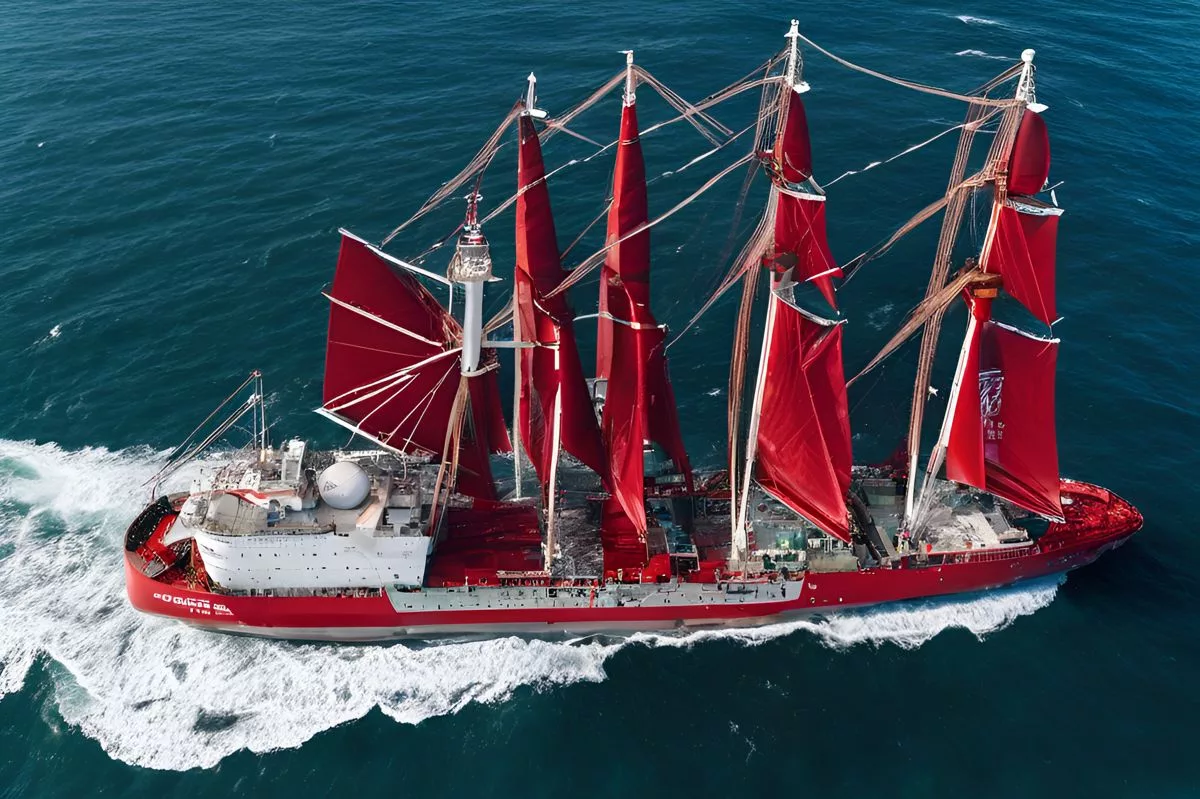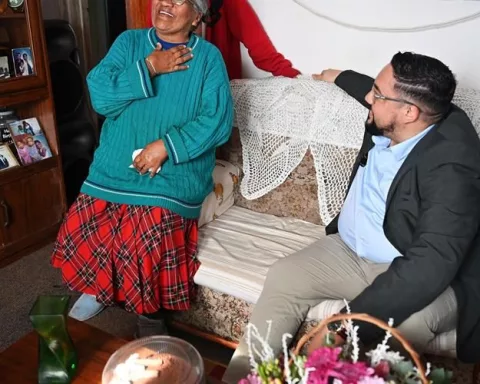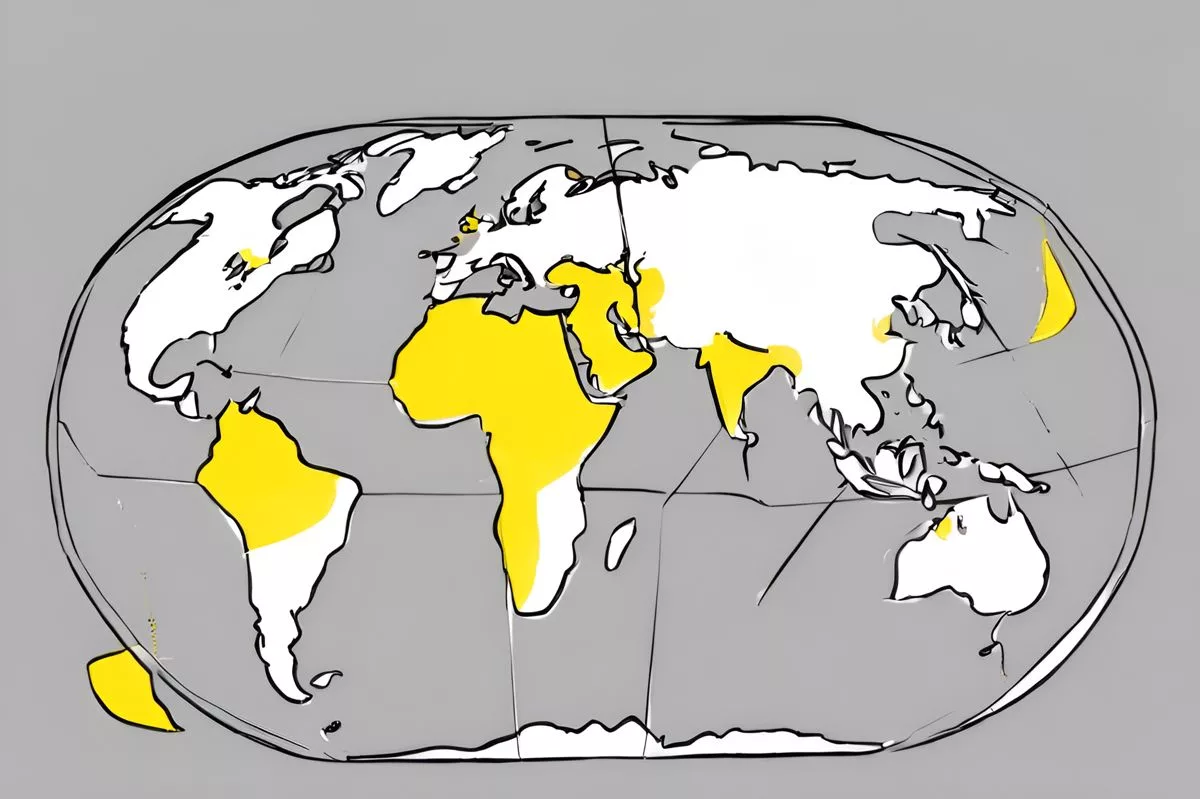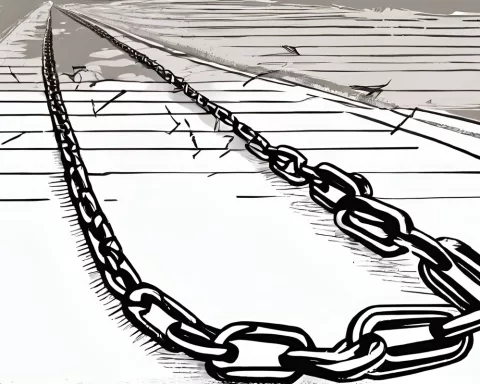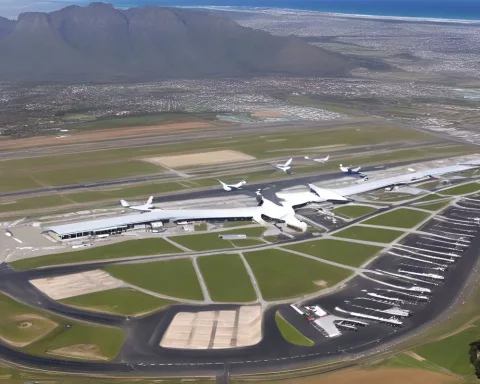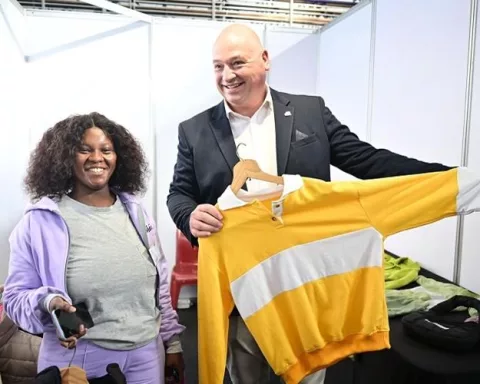The S.A Agulhas 1, a revered symbol of South Africa’s maritime heritage, has undergone a formal transition that demonstrates the country’s robust maritime capabilities. Key collaborations, including a partnership with JS Maritime, have enabled the ship’s success in education, training, and polar research. SAMSA’s forthcoming Seafarer Employment and Development Programme and the Roadmap to Maritime Decarbonisation highlight South Africa’s commitment to sustainable development and a prosperous maritime future. As South Africa enters a new chapter in its maritime journey, we anticipate continued growth and accomplishments.
A New Era in South Africa’s Maritime Domain: The Transition of S.A Agulhas 1. The event marks the formal transition of the S.A Agulhas 1, an esteemed maritime emblem that has loyally served South Africa. The S.A Agulhas 1 represents more than just a ship. It embodies South Africa’s maritime prospects and the nation’s dreams for the future.
On the 30th of January, 2024, an illustrious ceremony took place in Cape Town Harbour. This event marked the formal transition of the S.A Agulhas 1, an esteemed maritime emblem that has loyally served South Africa. The attendees were prominent individuals from various sectors such as maritime, diplomatic, and governmental sectors, including the Minister of Transport, Ms Sindisiwe Chikunga.
The transition of the S.A Agulhas 1 demonstrates the robustness and advancement of South Africa’s maritime capabilities. This event coincides with a significant time in South Africa’s history, marking 30 years of democracy in the country. The S.A Agulhas 1 represents more than just a ship. It embodies South Africa’s maritime prospects and the nation’s dreams for the future.
Alliance and Endeavors Fuelling the Success of S.A Agulhas 1
Key collaborations have significantly contributed to the success story of the S.A Agulhas 1, and they will remain essential to its future. At the core of these alliances is SAMSA, the South African Maritime Safety Authority, which carries a legislative obligation to further the maritime development interests of the country. The leadership of SAMSA has played an instrumental role in creating and sustaining these alliances, including the recent partnership with JS Maritime.
JS Maritime, under the guidance of Captain Stefan Bulow, will take over the management of the S.A Agulhas 1. The ship will continue to be an indispensable asset for maritime education, training, and polar research. Its future applications will align with the United Nations’ Sustainable Development Goals, particularly Goals 13 and 14, which correspond to Climate Action and Life Below Water, respectively. The repurposed vessel will continue to contribute to research that shapes the future of our world, highlighting South Africa’s dedication to global sustainability.
The transition of the S.A Agulhas 1 to JS Maritime also signifies the strengthening of the bilateral ties between Germany and South Africa. This partnership, which reflects Sustainable Development Goal 17, underlines the importance of worldwide collaborations for sustainable development. It also reaffirms Germany’s commitment to supporting South Africa’s maritime interests.
Forward-Looking Initiatives in the Maritime Sector
The ceremony also introduced the forthcoming launch of SAMSA’s Seafarer Employment and Development Programme (SEAD). Launching in the first quarter of the upcoming fiscal year, SEAD is an innovative initiative that aims to amplify maritime training and employment prospects for South African seafarers. With a strong dedication to promoting growth within the maritime sector and contributing to the national economy, SEAD seeks to provide more than just job opportunities. It aims to cultivate a highly skilled workforce that can skillfully navigate the modern maritime world.
In addition to SEAD, another noteworthy development is the drafting of the Roadmap to Maritime Decarbonisation for South Africa. This initiative corresponds to the International Maritime Organisation’s (IMO) 2023 Greenhouse Gas Strategy for shipping, which sets specific implementation milestones, the first of which is in 2030. This target obligates all IMO member states, South Africa included, to derive a portion of maritime fuels from cleaner sources.
A New Maritime Chapter for South Africa
The transition of the S.A Agulhas 1 is more than just a change in ownership. It signifies a strategic decision ensuring this iconic ship continues to serve South Africa’s national interests under new management. This event highlights South Africa’s unwavering commitment to maritime excellence and its determination to bolster its global maritime presence.
As South Africa inaugurates this new phase of its maritime journey, we remember the resilience, pioneering spirit, and forward-thinking ethos of the S.A Agulhas 1. It emulates the country’s journey towards a prosperous maritime future. As we rejoice at this significant event, we anticipate greater accomplishments and continuous growth in South Africa’s maritime sector, fueled by strategic alliances and forward-thinking initiatives.
1. What is the S.A Agulhas 1?
The S.A Agulhas 1 is a revered symbol of South Africa’s maritime heritage, which has undergone a formal transition to demonstrate the country’s robust maritime capabilities. It is a ship that represents more than just a vessel, embodying South Africa’s maritime prospects and the nation’s dreams for the future.
2. What are the key collaborations that have contributed to the success of S.A Agulhas 1?
SAMSA, the South African Maritime Safety Authority, has played an instrumental role in creating and sustaining alliances, including the recent partnership with JS Maritime. JS Maritime, under the guidance of Captain Stefan Bulow, will take over the management of the S.A Agulhas 1. The ship will continue to be an indispensable asset for maritime education, training, and polar research.
3. What is SAMSA’s Seafarer Employment and Development Programme (SEAD)?
SEAD is an innovative initiative that aims to amplify maritime training and employment prospects for South African seafarers. It seeks to cultivate a highly skilled workforce that can skillfully navigate the modern maritime world. It will launch in the first quarter of the upcoming fiscal year.
4. What is the Roadmap to Maritime Decarbonisation for South Africa?
The Roadmap to Maritime Decarbonisation for South Africa is an initiative that corresponds to the International Maritime Organisation’s (IMO) 2023 Greenhouse Gas Strategy for shipping. It sets specific implementation milestones obligating all IMO member states, including South Africa, to derive a portion of maritime fuels from cleaner sources.
5. What does the transition of S.A Agulhas 1 signify for South Africa’s maritime sector?
The transition of S.A Agulhas 1 signifies a strategic decision ensuring this iconic ship continues to serve South Africa’s national interests under new management. It highlights South Africa’s unwavering commitment to maritime excellence and its determination to bolster its global maritime presence.
6. What are South Africa’s commitments to sustainable development and a prosperous maritime future?
South Africa’s forthcoming Seafarer Employment and Development Programme and the Roadmap to Maritime Decarbonisation highlight the country’s commitment to sustainable development and a prosperous maritime future. South Africa aims to contribute to research that shapes the future of our world, highlighting its dedication to global sustainability.

